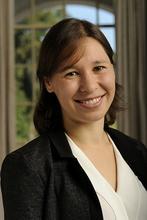AMERICAN POLITICS & PUBLIC POLICY WORKSHOP
Abstract: This talk examines debtors’ influence on the development of the American state. In particular, it recovers debtors’ long-standing arguments that government was obligated to protect them from economic ruin, and their success in establishing a social safety net through the law governing debtors and creditors. It examines the role of the nineteenth-century’s political economy in helping debtors to reject any stigma associated with insolvency, to shape public policy, and even transform the meaning of the U.S. Constitution. It also demonstrates that, by the end of the twentieth century, the conditions that had created powerful debtors’ movements had changed, allowing lenders to begin dismantling this safety net.
Emily Zackin is Assistant Professor at the Krieger School of Arts & Sciences at Johns Hopkins University. She earned her Ph.D. in politics from Princeton University. Professor Zackin is the author of Looking for Rights in All the Wrong Places: Why State Constitutions Contain America’s Positive Rights (Princeton University Press, 2013), which focuses on three political movements that added positive rights to state constitutions. In particular, it examines the campaign for education rights, which spanned the nineteenth and twentieth centuries, the movement for positive labor rights, which occurred during the Gilded Age and Progressive Era, and the push to add environmental bills of rights to state constitutions during the 1960s and 1970s. Professor Zackin spent the 2016-7 academic year as a member in the School of Social Science at the Institute for Advanced Study in Princeton, New Jersey. Her current book project focuses on the role of debt and debtors’ movements in American constitutional and political development.
